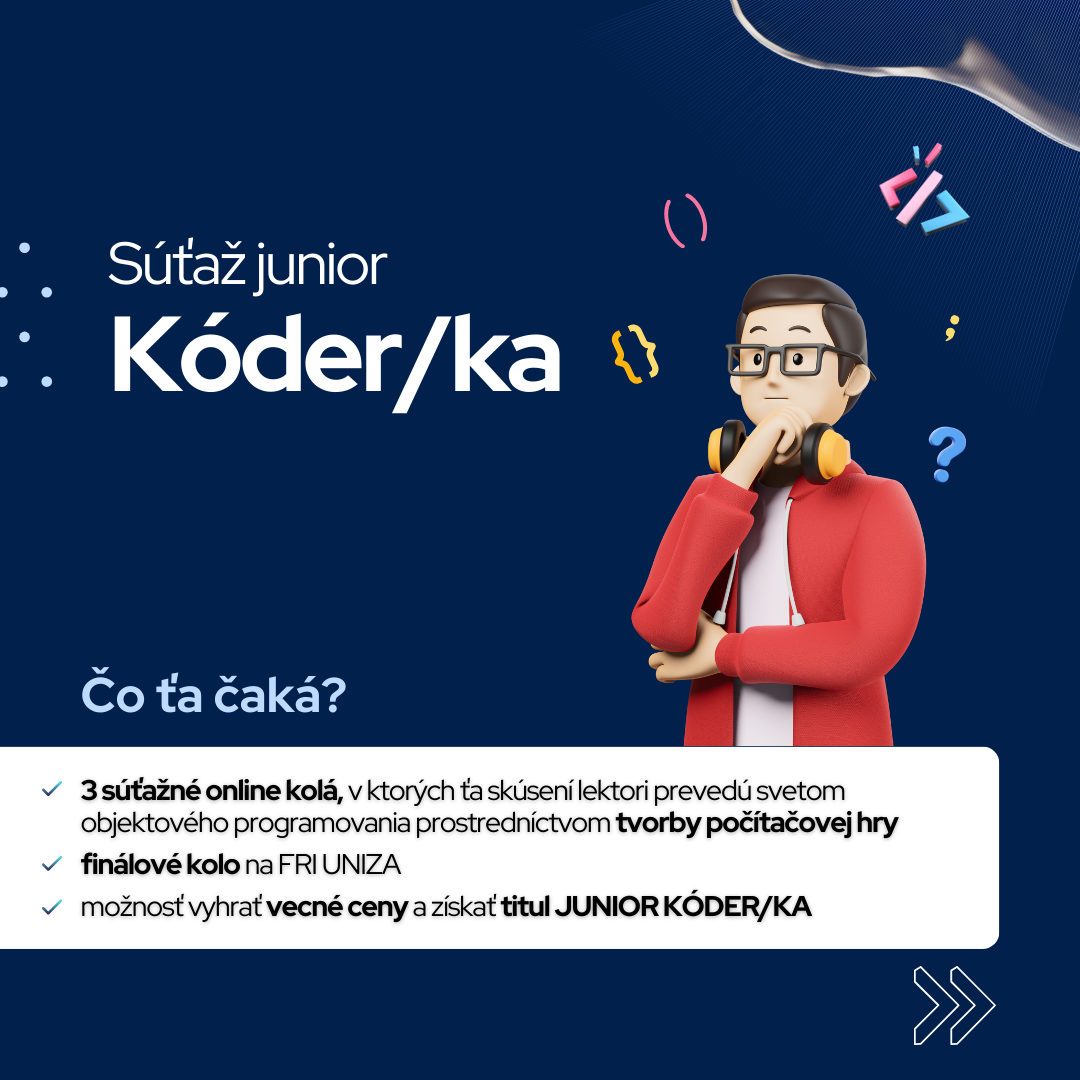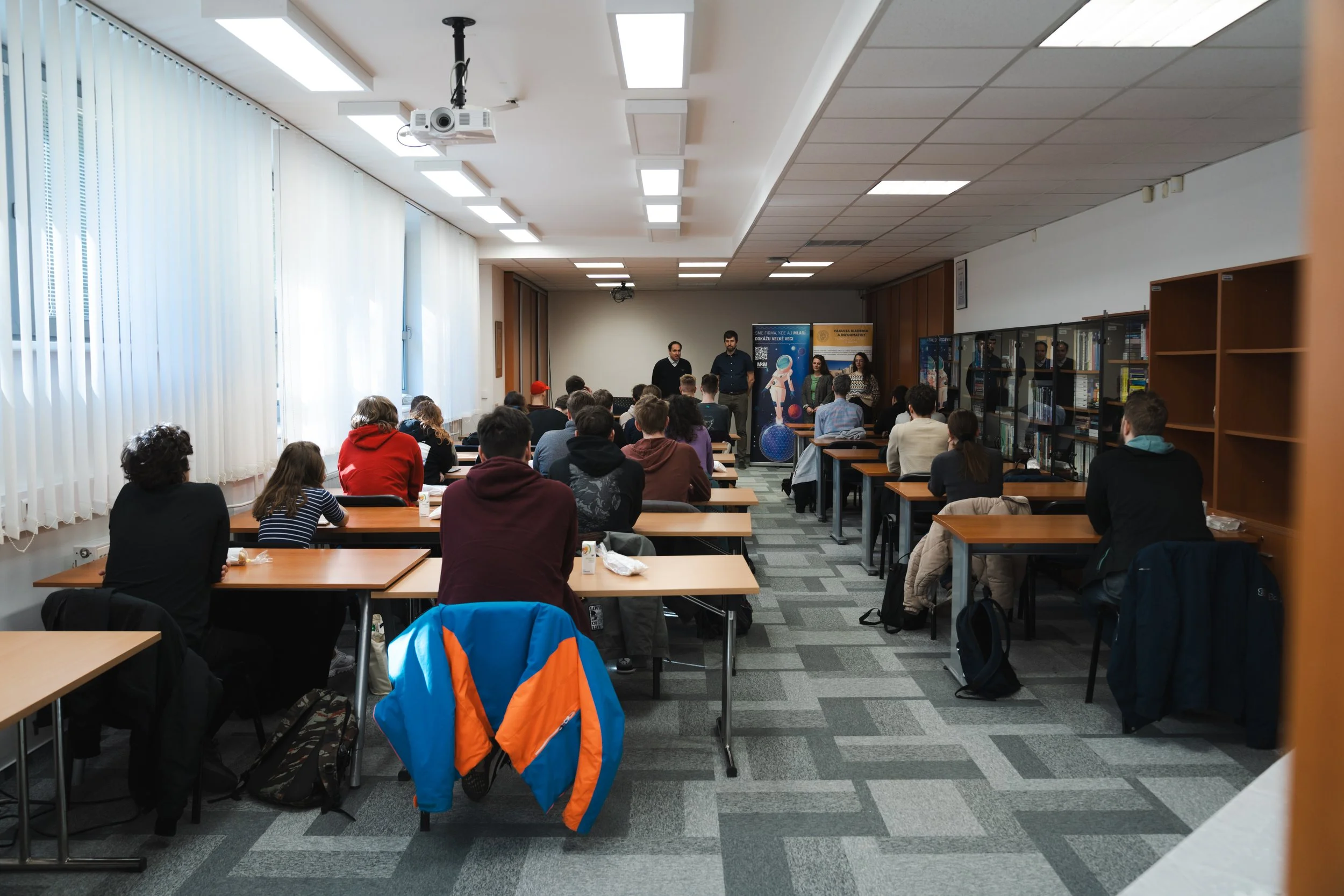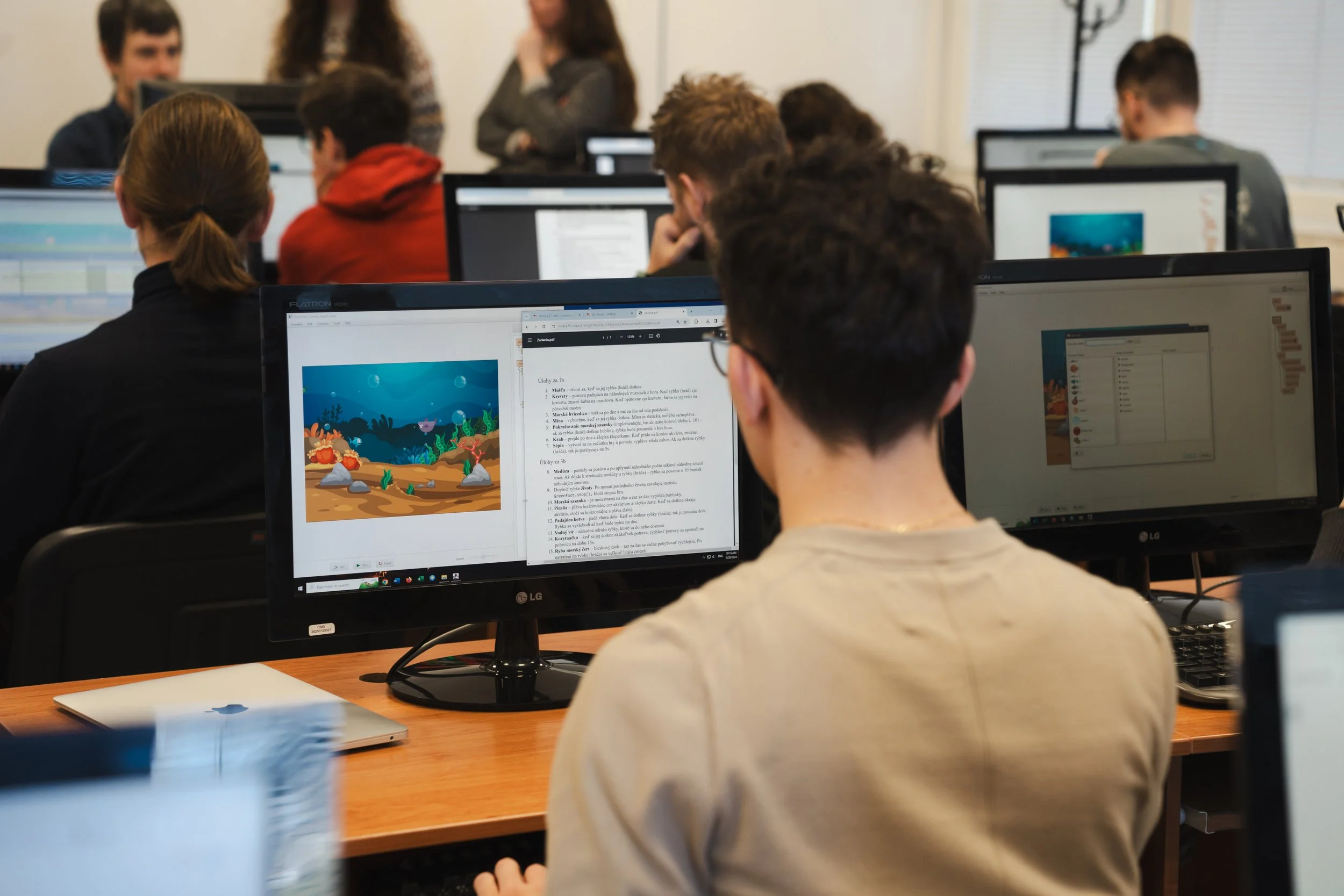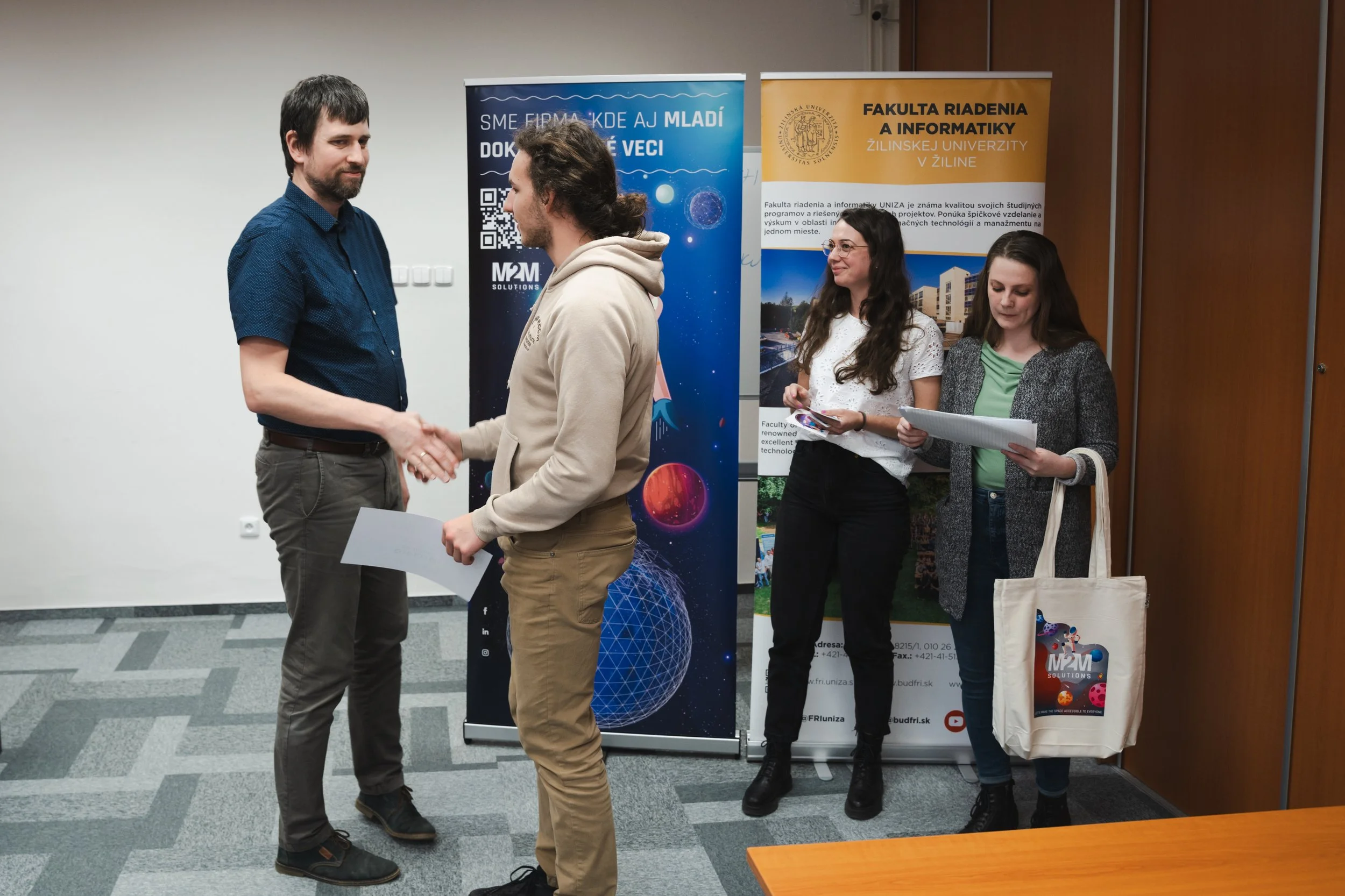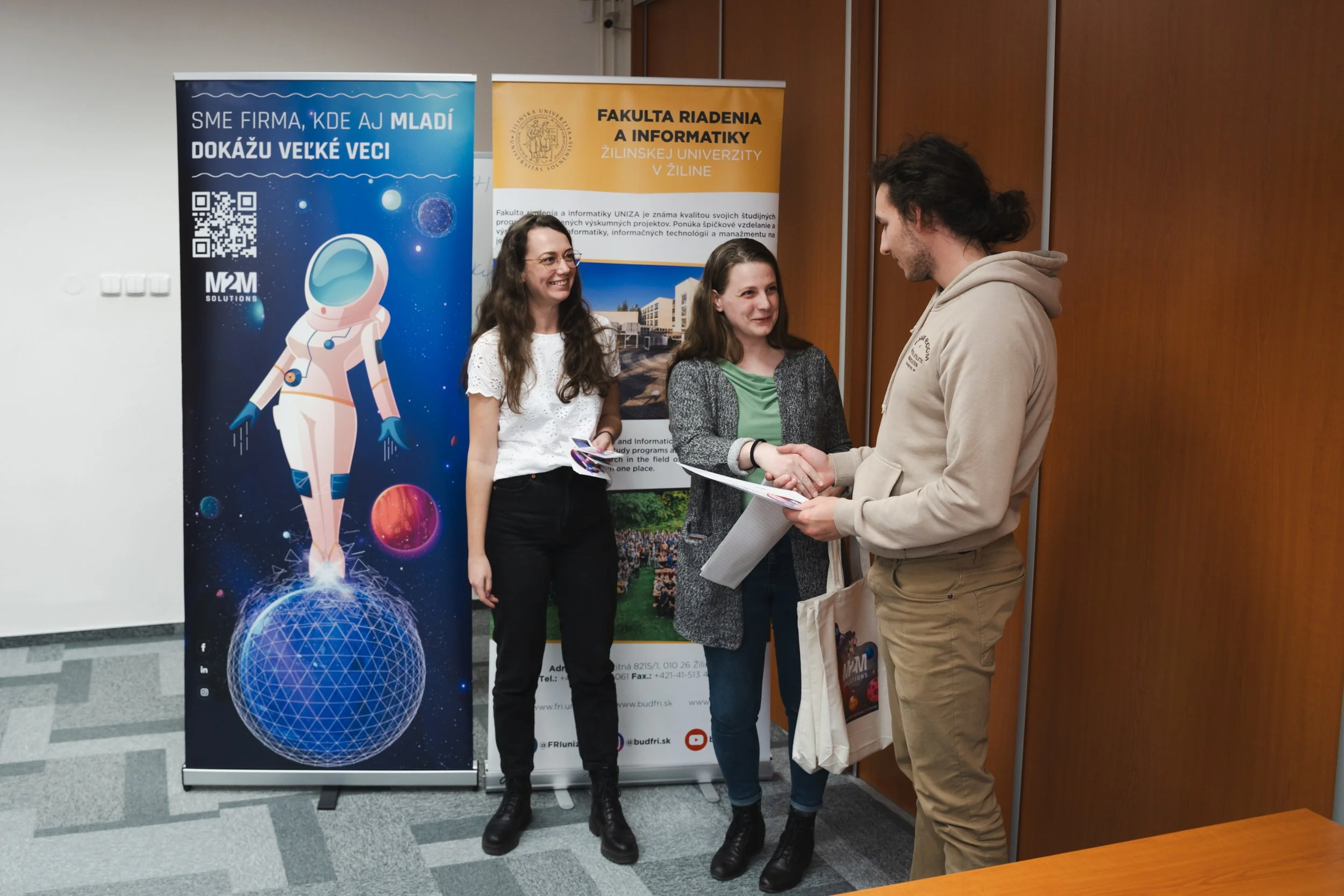Junior coder 2024 - mentoring at the University of Zilina
The first year of the Junior Coder competition is over and we were thrilled to be a part of it! The continuous support of the University of Žilina, specifically the Faculty of Management Science and Informatics (FRI), surprised and delighted many high school students from all over Slovakia by offering them a platform to demonstrate their programming skills. / We appreciate the initiative of the University of Žilina, specifically the Faculty of Management Science and Informatics, in organizing a competition that gives high school students from all over Slovakia the opportunity to showcase their programming talents.
One of our long-term goals is to support young talents and provide them with practical experience, so we can nurture future experts in the field of information technology. Participating in this competition allowed us to meet talented students who impressed us with their creativity and unwavering desire to learn new things.
The idea for the educational-competition activity originated directly from the Faculty of Management Science and Informatics at the University of Žilina (FRI), with which our colleagues Terezia and Natalia have been long-term collaborators. When the idea for a new competition activity was conceived on FRI, the girls embraced the opportunity to become part of the organizing team along with Michal Varga and Michal Mrena. The competition consisted of three online workshops, three home competition tasks, and a final event where we met the finalists in person at the faculty premises in Žilina.
The competition was open to all high school students, regardless of their previous programming experience. They just needed to find the courage, fill out the registration form, and handle the installation of the programming environment. Each workshop was themed "OOP in a Playful Way," a topic our colleagues have organized several workshops and programming schools around, not only for students but also for high school teachers.
Natalia led the first of the three workshops. While programming a simple yet impressive game, she explained the most basic concepts of object-oriented programming (OOP) to the participating students. "At the beginning, students don't remember all the terms, but when we show them what each term represents, it becomes easier. During programming, we repeat all the terms, proceed slowly, and review what each term means," Natalia explained. In their first project, students created an aquarium, implemented a player, and a basic enemy - a shark.
In the second workshop, Terezia introduced students to the principles of inheritance. They built on the project from the first round and collectively improved the virtual aquarium game. They added new features while focusing on the theme of inheritance in OOP.
The last workshop in the series was led by Michal Mrena, a colleague from FRI and part of the M2Ms team in our space project SENAV. The theme of this session was polymorphism, where Michal worked with the students to develop the aquarium into a complex game, considering both the programmer's and the player's perspectives.
After each workshop, students had a week to complete a homework assignment that tested their knowledge gained during the workshop. Besides scoring, students received written feedback, and the submitted projects were evaluated continuously, allowing students to revise their solutions and improve their scores.
Out of 174 high school students, we selected the 29 most successful ones to advance to the finals.
The content of the workshops, assignments, and final tasks were curated by the organizing team, who decided to continue with the aquarium theme, already well-known to the competitors. In the finals, participants could earn up to 71 points across 22 tasks, divided into three groups based on difficulty level. Competitors could determine their own strategy for completing the tasks. This approach allowed for various tactics and strategies, enhancing the competition's dynamics and competitive spirit. Terezia and Natalia from the organizing team mentioned that the biggest surprise of the final round was a high school student who solved all 22 tasks within 2 hours. This achievement was truly remarkable, as some tasks would have challenged even the brightest minds. Not only was the winner surprising, but also the close differences between the second and third places. Most importantly, the entire competition day was filled with a great atmosphere, the students were in high spirits, and the competition's goal was fulfilled. Even though there could only be three winners, we believe that all 174 students gained valuable experiences and knowledge that will drive them to further explore programming and technological skills.
We thank our partners from the Faculty of Management Science and Informatics for this opportunity and look forward to further collaboration.

